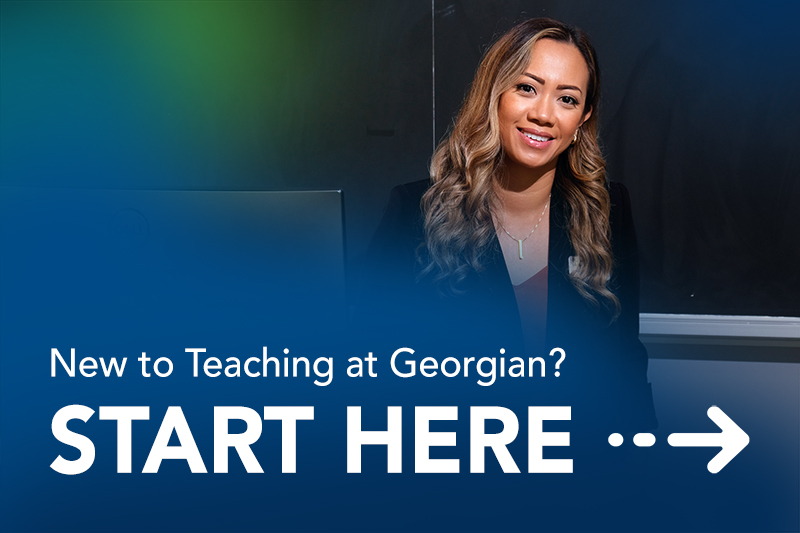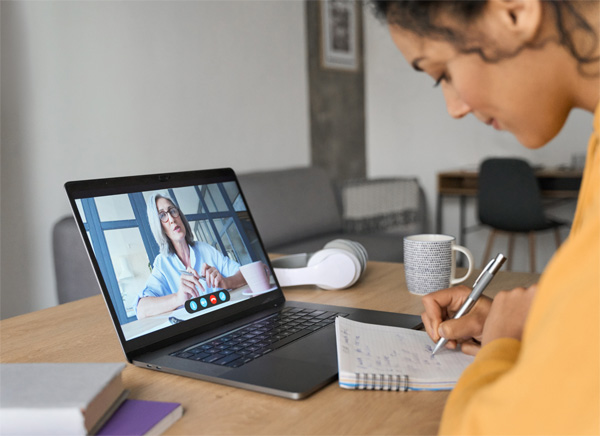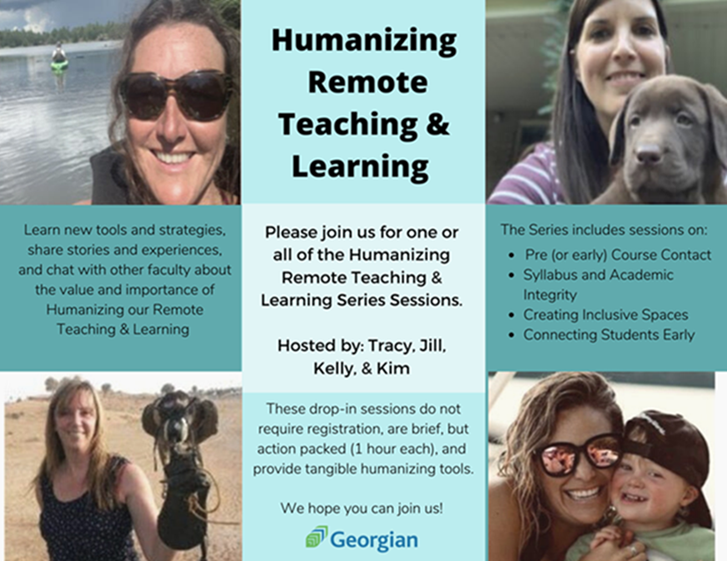
CTL Home
The Centre for Teaching and Learning (CTL) facilitates academic professional development (PD) with emphasis on the quality of the student learning experience and support for those experiences both in and outside the classroom. Our focus is on internal and external PD that leads to improved student learning through improved teaching and learning practices, systems and support.

Welcome to Georgian
The Centre for Teaching and Learning is here to support all faculty. As a new faculty, we know you have lots of questions. We hope you will find this information and professional development opportunities helpful as you start your journey.
Workshop schedule
View upcoming CTL Workshops for the Winter 2025 semester:
The workshop calendar may take few seconds to load. If it does not load, please refresh the page once.
This schedule of workshops is updated often, so please check back weekly!
Please note the following:
- Registration is not required for drop-in sessions.
- Registration for PT/PL Journey (formerly T@G) registration form is currently being done through an MS Forms document. Please contact Faculty Development Team for access to the MS Forms to ensure access and eligibility.
- Registration is required for workshops, communities of practice and other related CTL offerings.
- Future workshop registration links are forthcoming.
Modality/Location: Please note that workshops are being delivered virtually and/or face to face. If a workshop is available face-to-face, its location will be added to the description. Otherwise, it will be available online only.
If you have difficulty registering for a workshop, or have any questions please email CTL@georgiancollege.ca.

Online Self-Paced Asynchronous PD Courses
Looking for a way to grow your teaching skills on your own schedule? Don’t have time to attend a workshop? CTL’s online, self-paced professional development courses are just the thing. They’re designed to fit into your busy life while giving you the tools and ideas to grow your teaching and learning practice.
As part of the wide range of professional learning opportunities offered through Georgian College’s Centre for Teaching and Learning (CTL), these micro certificates offer you options for your growth and professional development. It’s all about helping you build your skills and create amazing learning experiences for your students.

Georgian Faculty Competency Framework
The Innovative Georgian College Faculty Competency Framework is a system meant to help educators consider, engage in conversation about, and celebrate the many roles we assume and hats we wear in our day-to-day professional lives.
We are designers, researchers, inclusive practitioners, changemakers, digital navigators, collaborators, reflectors, and mentors.
We weave associated competencies into our daily practices and grow from emerging to performing to transforming over time. We are thrilled to connect with you about this model.

Contact CTL
Learning technologies
For any questions about learning technologies outside of Blackboard:
Faculty development
For any questions about faculty development:
All other inquiries
For all other questions related to teaching and learning:
